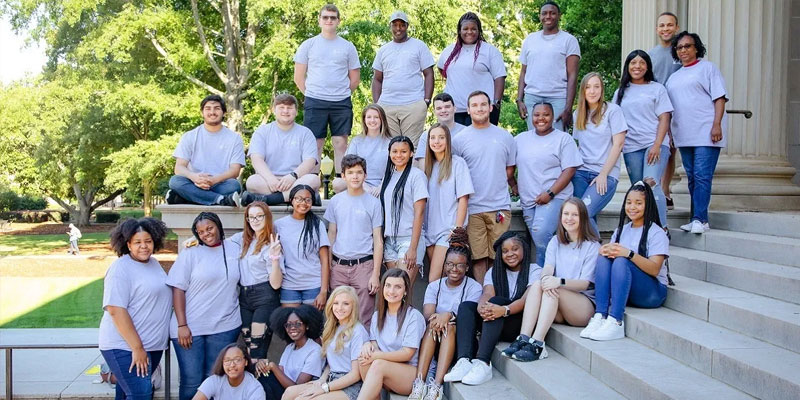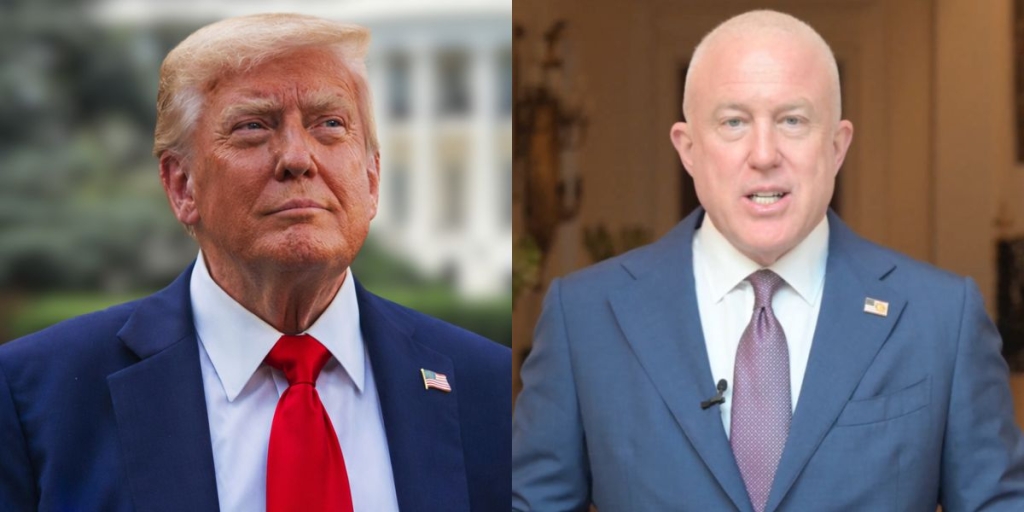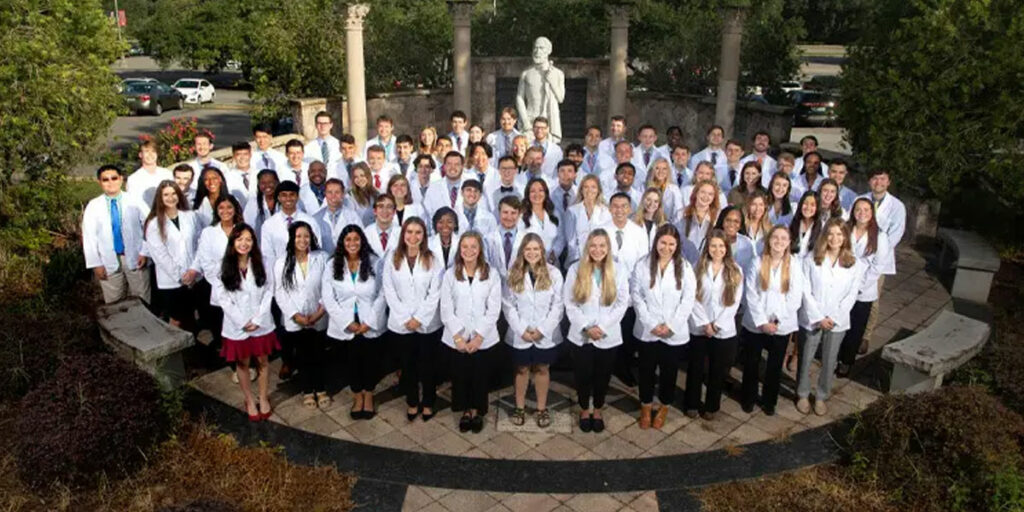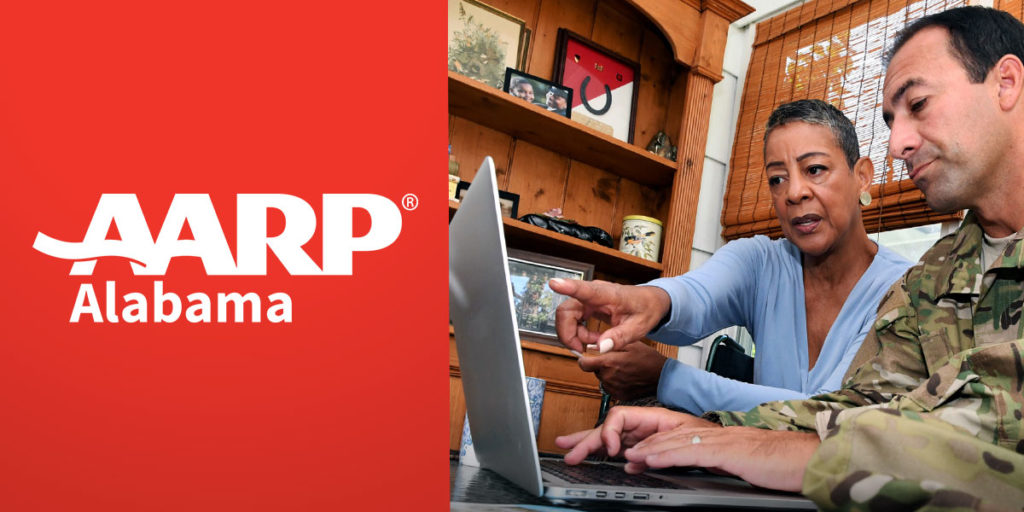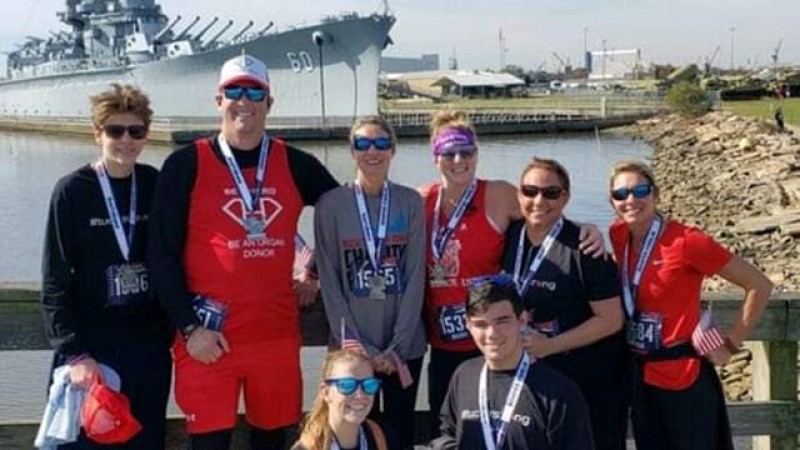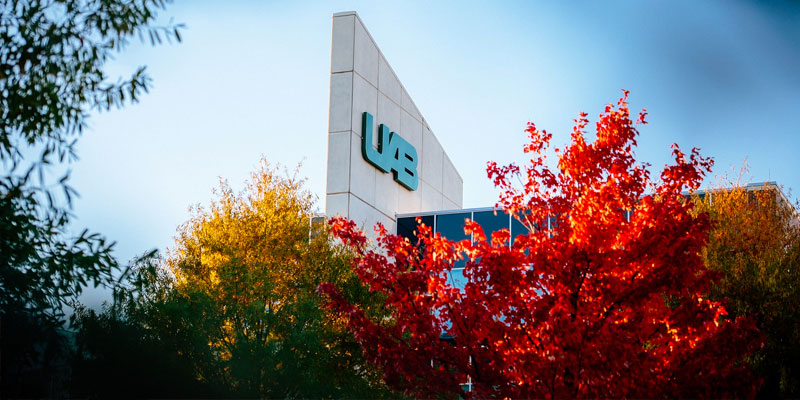Rural Alabama high school students and recent graduates are participating in annual programs this summer at the University of Alabama, where they learn about the need their communities have for more doctors and health care professionals.
Through the Minority Rural Health Scholars Program and Rural Health Scholars Program, both part of the UA College of Community Health Sciences, 27 high school students and graduates spend five weeks on campus taking college courses for credit and learning to prepare for health professions education and training.
The goal of the programs is to encourage students to consider health care professions. With funding for the programs from the Alabama Family Practice Rural Health Board, students do not have to pay for tuition, housing and field trips.
“Rural Health Scholars and Minority Rural Health Scholars programs are great opportunities for students from rural Alabama to learn about different health careers,” said Cynthia Moore, assistant director of Rural High School Programs for UA’s College of Community Health Sciences. “The students have enjoyed the seminars and learned a lot from the speakers.”
The two programs are part of the college’s nationally recognized Rural Health Leaders Pipeline and offered in collaboration with Alabama Area Health Education Centers. AHECs were created by Congress in 1971 to increase the quantity, diversity and distribution of health care professionals, especially in rural and underserved areas.
The Minority Rural Health Scholars Program seeks to increase the number of minority students from rural Alabama who qualify for admission to medical school. The program is for high school graduates who, in addition to taking classes at UA, are provided tutorials to enhance their knowledge and test-taking skills to achieve competitive scores on the Medical College Admissions Test (MCAT). The students shadow physicians and other health care professionals.
The Rural Health Scholars Program aims to provide opportunities for rising high school seniors from rural communities in Alabama to pursue careers in medicine and health care professions. Students take college courses, participate in seminars with practicing health care professionals and visit health care facilities.
Moore said this summer the students, who spent the past year taking high school classes on Zoom because of the pandemic, “had to learn how to readjust to attending in-person classes and adapting to different teaching styles.”
The mission of the college is to improve and promote the health of individuals and communities in rural Alabama and the Southeast region through leadership in medical and health-related education; primary care and population health; the provision of high-quality, accessible health care services; and research and scholarship.
This summer’s participants are:
Minority Rural Health Scholars:
- Lisset Amado, from Slocomb in Geneva County.
- Danaea Miller, from Dixon Mills in Marengo County.
- Naomi Perez, from Heflin in Cleburne County.
- Kaitlyn Riggins, from Eclectic in Tallapoosa County.
- Za-Nyah Truitt, from New Brockton in Coffee County.
- Shaniya Warburton, from Florence in Lauderdale County.
- Jacob Webber, from Madison in Madison County.
Rural Health Scholars:
- Kiana Adams, from McIntosh in Washington County.
- Aaron Barrett, from Valley in Chambers County.
- Denzel Childs, from Marion in Perry County.
- Mia Deason, from Clanton in Chilton County.
- Erica Doss, from Andalusia in Covington County.
- Alejandro Elizondo, from Pisgah in Jackson County.
- Hannah Frost, from Berry in Fayette County.
- Maggie Hammack, also from Berry.
- Khamani Hampton, from Killen in Lauderdale County.
- Nia Jones, from Attalla in Etowah County.
- Kalin Lewis, from Faunsdale in Marengo County.
- Deshadia Lowery, from Orrville in Dallas County.
- Matthew Martin, from Jasper in Walker County.
- Lilly McCauley, from Prattville in Autauga County.
- Kasia Nicholson, from Pine Hill in Wilcox County.
- Shemai’ya Peak, from Millbrook in Elmore County.
- Kyle Shaw, from Fairhope in Baldwin County.
- John Skelton, from Northport in Tuscaloosa County.
- Taleedra Smith, from Marion in Perry County.
- Samantha Stanley, from Centre in Cherokee County.
This story originally appeared on the University of Alabama’s website.
(Courtesy of Alabama NewsCenter)




